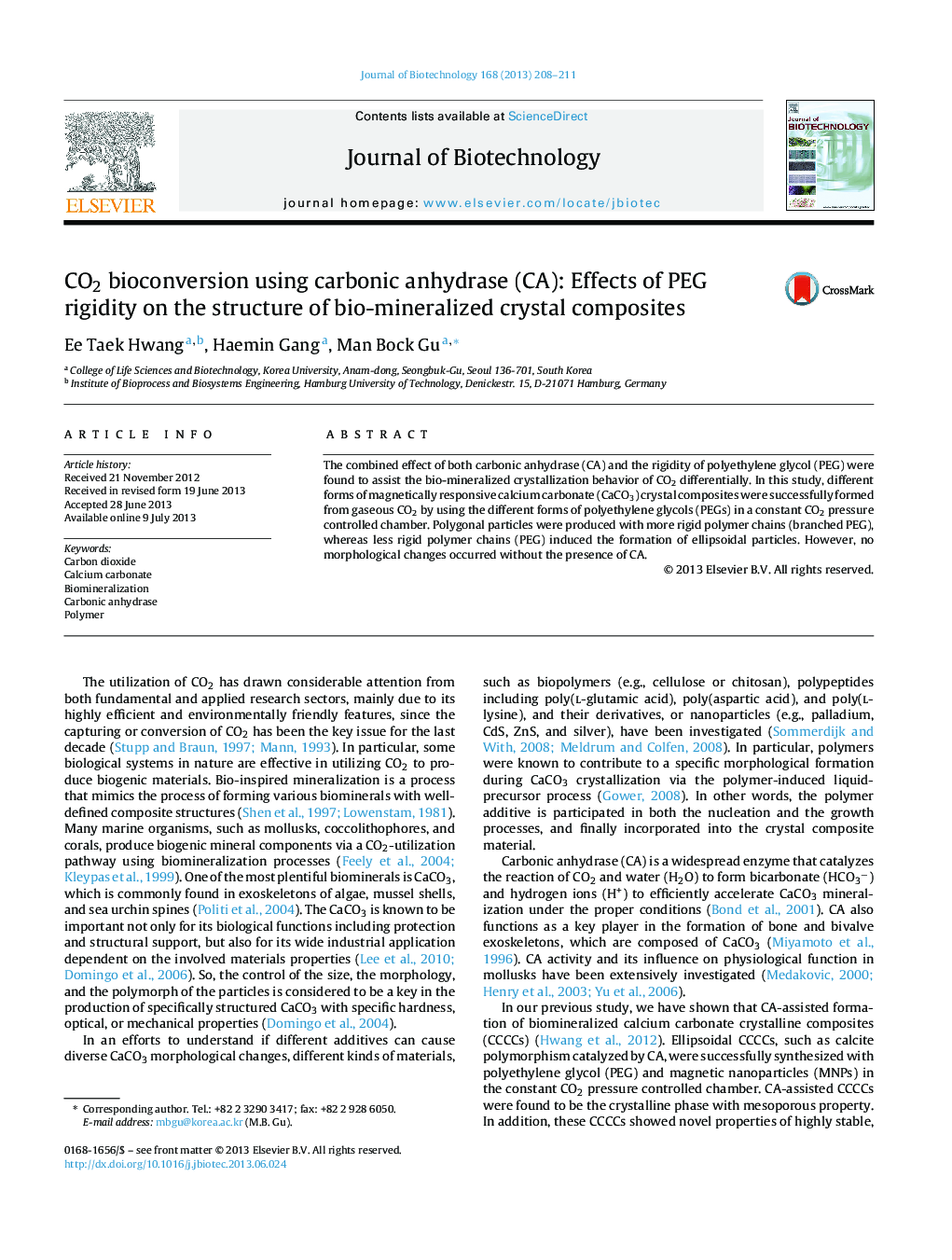| Article ID | Journal | Published Year | Pages | File Type |
|---|---|---|---|---|
| 23371 | Journal of Biotechnology | 2013 | 4 Pages |
•The mechanism study on crystallization behavior of CA-assisted CaCO3 is found to be controlled by the rigidity of PEG.•Polygonal particles were produced with more rigid polymer chains (branched PEG).•Less rigid polymer chains (PEG) induced the formation of ellipsoidal particles.•The diffusion rate of gaseous CO2 seemed to be important to start the nucleation.•Combined effect of the polymer chain rigidity arising from branches (modification) and CA affected morphogenesis of CaCO3 crystals.
The combined effect of both carbonic anhydrase (CA) and the rigidity of polyethylene glycol (PEG) were found to assist the bio-mineralized crystallization behavior of CO2 differentially. In this study, different forms of magnetically responsive calcium carbonate (CaCO3) crystal composites were successfully formed from gaseous CO2 by using the different forms of polyethylene glycols (PEGs) in a constant CO2 pressure controlled chamber. Polygonal particles were produced with more rigid polymer chains (branched PEG), whereas less rigid polymer chains (PEG) induced the formation of ellipsoidal particles. However, no morphological changes occurred without the presence of CA.
